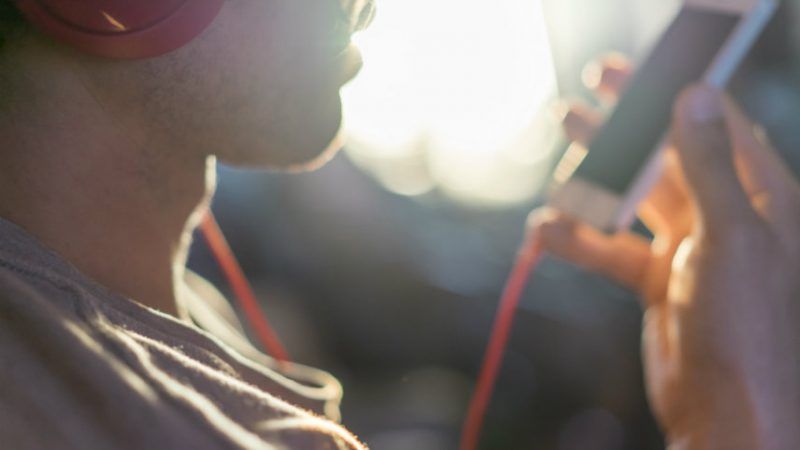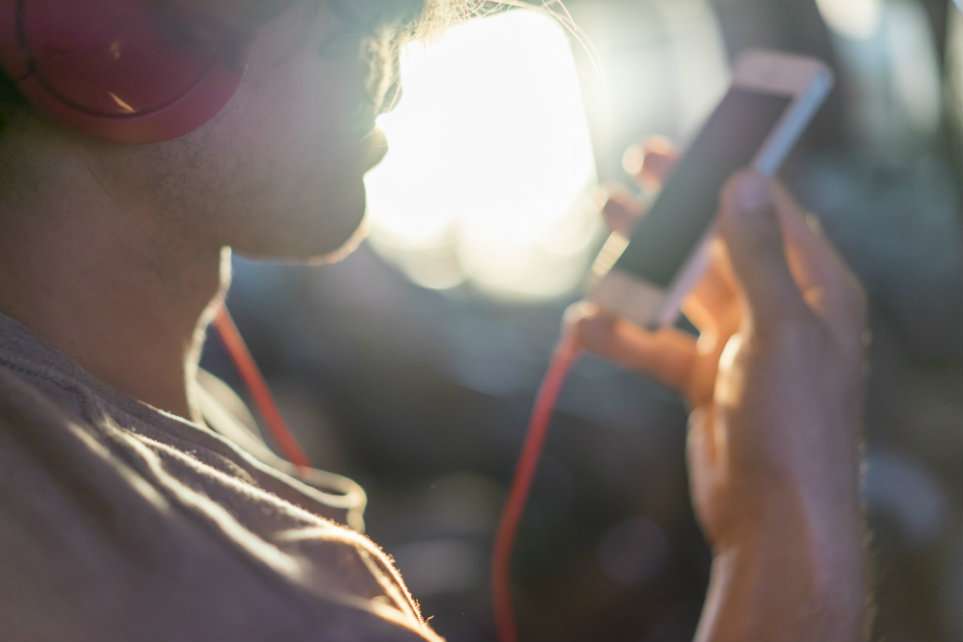'New Rights' for Air Travelers in Senate Bill Are Anything But: Reason Roundup
Plus: Kavanaugh vote slated for Friday, Houston bans sex with dolls, and Supreme Court considers trucker pay.


"Senate approves measure giving airline passengers new rights," reports ABC News. The measure is a massive Federal Aviation Administration (FAA) reauthorization bill packed with terrible provisions, including one that would allow the Department of Homeland Security to shoot down citizen and commercial drones. But at least it may also contain some good, I thought, eagerly clicking on the ABC headline. Could they be easing up on some TSA security theater antics? Cutting back on using Federal Air Marshals as secret airport spies?
Ha! By passenger rights, ABC apparently wasn't talking about the treatment air travelers and airport goers are subjected to by government agents. These so-called "rights" would come via more federal interference into how airline companies do business, and more restrictions on what passengers can do in the air! Some of the "new rights" include:
- Being banned from making voice calls while a plane is in the air.
- Not being forced to give up your seat on an overbooked flight. After a high-profile 2017 incident, "domestic carriers put an end to the practice," notes ABC, but this bill would create a new regulation to ban the already obsolete act.
- Being allowed to check child strollers at gates. You could already do that with most airlines, but this would ban airlines from ever disallowing it.
The FAA reauthorization act would also:
- Prohibit airlines from ordering passengers to put pet carriers in overhead bins—something that has only been known to happen once, in what the flight attendant involved said was the result of a misunderstanding.
- Stipulate that all airlines must let pregnant women and families with small children board early.
- Require regulators to reconsider seat-size requirements with an eye to what is "necessary for the safety of passengers." ABC notes that "with the FAA already having decided current sizes are safe, it's unlikely to have any impact."
- Require medium-sized and larger airports to provide children's changing tables in both male and female bathrooms and to provide private rooms for nursing mothers. These changes would, at least in part, be paid for by the U.S. Department of Transportation
When not utterly pointless, these requirements are the sort that sound good (or at least unobjectionable) to many people. But they impose costs in the form of one-size-fits-all solutions that actually make things worse for consumers. For instance, an airport that had—or was thinking of installing—a lot of gender-neutral family bathrooms would now instead/also have to set up separate-but-equal changing facilities in men's and women's restrooms.
An airline that caters primarily to business travelers might want to allow voice calls in certain sections or on certain flights, and travelers might appreciate or even pay a premium for this opportunity. Under this measure, that won't be allowed.
Imagine nearly two million passengers, hurtling through space yapping their innermost thoughts while you travel restrained by your seatbelt and unable to escape. pic.twitter.com/OQvXm5y5DC
— Sen. Lamar Alexander (@SenAlexander) October 3, 2018
And these are only a few of the many, many issues the bill addresses. I haven't read through the whole thing yet, but I'm guessing there's a lot more hidden "rights" in there, too.
"Overall, it's a rag bag of everything under the sun, but largely status quo," Robert Poole, director of transportation policy at the Reason Foundation (the nonprofit that publishes this website) told us last week. Poole said the bill comes with "no major policy changes"—and no long-sought reforms either.
The Senate also passed a new 660-page drug-war bill yesterday.
FREE MINDS
Tune in, turn on, cure depression. Researchers at the prestigious Johns Hopkins University are asking the Drug Enforcement Administration to take another look at psilocybin, the naturally-occurring compound that gives some mushrooms a psychedelic punch.
"The suggestion to reclassify psilocybin from a Schedule I drug, with no known medical benefit, to a Schedule IV drug, which is akin to prescription sleeping pills, was part of a review to assess the safety and abuse of medically administered psilocybin," reports The New York Times. "Before the Food and Drug Administration can be petitioned to reclassify the drug, though, it has to clear extensive study and trials, which can take more than five years, the researchers wrote."
Read their whole analysis here.
FREE MARKETS
Trucker case could have huge effects. A case concerning truckers went before the U.S. Supreme Court yesterday. Depending on the result, it "could saddle the industry with higher costs that could hit consumers and ripple throughout the economy," warns CNBC. The case—New Prime Inc. v. Oliveira—stems from a suit filed by long-distance truck driver Dominic Oliveira three years ago over his pay. More from CNBC:
The case pits business interests against labor groups in the first major case of the term that could have consequences for hundreds of thousands of American workers and potentially millions of consumers. It could shape an industry that generates more than half a trillion dollars in annual revenue.
The case also raises questions about the use of the "independent contractor" designation to reduce pay and benefits for workers who perform essentially identical work as employees. On that front, the court's decision could have ramifications for virtually every sector of the economy.
FOLLOW UP
It's heeeeere. Members of the Senate Judiciary Committee now have the FBI's supplementary report on Supreme Court nominee Brett Kavanaugh.
Supplemental FBI background file for Judge Kavanaugh has been received by @senjudiciary Ranking Member Feinstein & I have agreed to alternating EQUAL access for senators to study content from additional background info gathered by non-partisan FBI agents 1/3
— ChuckGrassley (@ChuckGrassley) October 4, 2018
A vote on Kavanaugh's nomination is scheduled for tomorrow. Meanwhile, Michael Avenatti is still unearthing accusers to talk about spiked punch.
QUICK HITS
The family says it'll leave w/ her. So Trump rather lose Americans who protect this country rather than welcome new ones in! Adopted daughter of military family will have to leave the country, court rules https://t.co/vlyYksAGr3
— shikha sood dalmia (@shikhadalmia) October 3, 2018
- A new "presidential alert system" launched yesterday. There's already a lawsuit seeking to put an end to it.
- In San Francisco, at least 30 percent of public art featuring non-fictional people must depict woman, according to a new city ordinance.
- Houston has passed a ban on people having sex with "anthropomorphic devices."
- Drug-law reform goes south: Savannah, Georgia, has stopped jailing people for small marijuana violations
- Standing desks are overrated.
Find yourself a man who can do both. https://t.co/XuS4MpbUkx
— Scott Shackford [Blue Checkmark] (@SShackford) October 3, 2018


Show Comments (211)